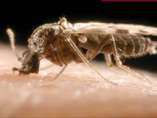Bluetongue control zone spreads
Bluetongue: control zone spreads as new case is confirmed


Bluetongue has now appeared in Sevenoaks and, as a result, the Department for Environment, Food and Rural Affairs (Defra) has extended the Bluetongue Control Zone in Kent and East Sussex.
The existing Control Zone in Essex and East Anglia will now merge with the Control Zone in Kent and East Sussex, to become one single Zone.
The Control Zone in Peterborough remains unchanged.
Bluetongue disease was first detected on 22 September, and, on 28 September, it was confirmed to be circulating between the local animal and midge populations in East Anglia.
The disease has now spread to other areas of South East England.
Facts about Bluetongue: (from the Animal Health website):
- Domestic and wild ruminants can be affected; for example, sheep, cattle, goats and deer
Sign up for the Country Life Newsletter
Exquisite houses, the beauty of Nature, and how to get the most from your life, straight to your inbox.
- Camelids can be affected; for example, llama and alpaca
- Sheep are most severely affected
- Cattle are infected more often than sheep, but they do not often show signs of the disease
- Humans are not affected
Clinical signs of Bluetongue in sheep: (from the Animal Health website):
- Eye and nasal discharges which becomes thick and crusty
- Drooling as a result of ulcerations in the mouth
- High body temperature
- Swelling of the mouth, head and neck
- Lameness with wasting of the muscles of the hind limb
- Haemorrhages into or under the skin
- Inflammation at the junction of the skin and the horn of the foot ? the coronary band
- Respiratory problems ? difficulty with breathing and nasal discharge
- A blue tongue is rarely a clinical sign of infection
- Fever
- Tiredness
Clinical signs of Bluetongue in cattle: (from the Animal Health website):
It is possible that cattle will show no signs of illness. However, clinical signs have included:
- Nasal discharge
- Swelling of the head and neck
- Conjunctivitis (red and runny eyes)
- Swelling inside and ulceration of the mouth
- Swollen teats
- Tiredness
- Saliva drooling out of the mouth
- Fever
For further information about the spread of Bluetongue, or the Control Zones, call the Defra helpline on 08459 33 55 77, or the Animal Health information line on 0844 8844 600.
Country Life is unlike any other magazine: the only glossy weekly on the newsstand and the only magazine that has been guest-edited by HRH The King not once, but twice. It is a celebration of modern rural life and all its diverse joys and pleasures — that was first published in Queen Victoria's Diamond Jubilee year. Our eclectic mixture of witty and informative content — from the most up-to-date property news and commentary and a coveted glimpse inside some of the UK's best houses and gardens, to gardening, the arts and interior design, written by experts in their field — still cannot be found in print or online, anywhere else.
-
 ‘It had the air of an ex-rental, and that’s putting it politely’: How an antique dealer transformed a run-down Georgian house in Chatham Dockyards
‘It had the air of an ex-rental, and that’s putting it politely’: How an antique dealer transformed a run-down Georgian house in Chatham DockyardsAn antique dealer with an eye for colour has rescued an 18th-century house from years of neglect with the help of the team at Mylands.
By Arabella Youens
-
 You're having a giraffe: Country Life Quiz of the Day, April 25, 2025
You're having a giraffe: Country Life Quiz of the Day, April 25, 2025Friday's Quiz of the Day brings your opera, marathons and a Spanish landmark.
By Toby Keel